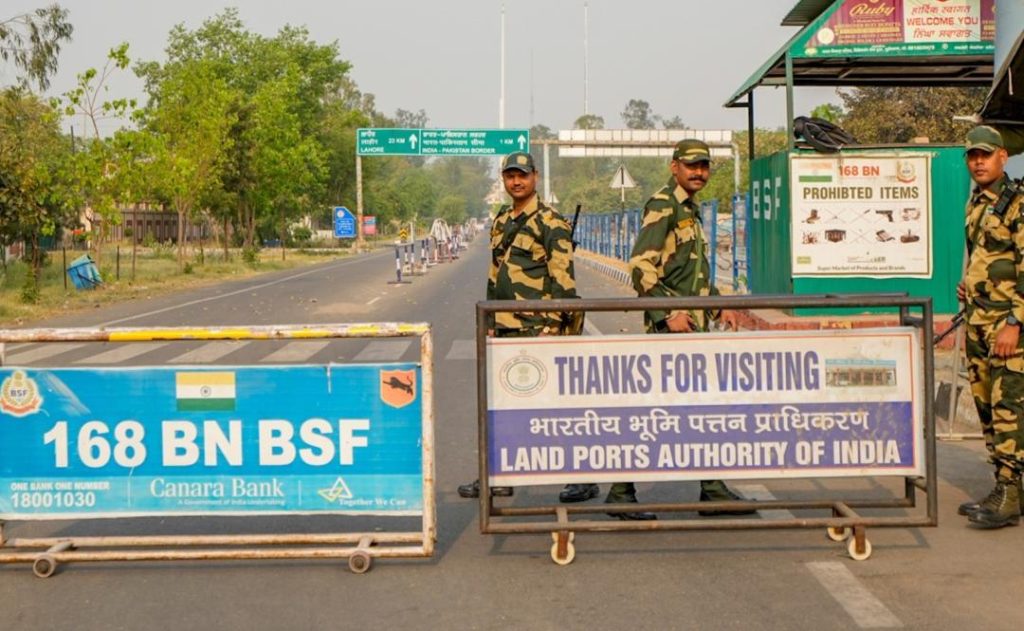
Attari-Wagah Border between India & Pakistan Completely Closed
The Attari-Wagah border, one of the most iconic and heavily guarded borders in the world, has been completely closed, leaving both India and Pakistan in a state of uncertainty. According to reports from PTI, the border was shut on Thursday, with no person from either side crossing to the other. This sudden development comes after Pakistan had earlier stopped accepting its citizens who were deported by India, following a series of mass deportations that began after the Pahalgam terror attack.
The Pahalgam terror attack, which occurred on October 8, claimed the lives of 26 tourists, sending shockwaves across the world. In the aftermath of the attack, Indian authorities had begun to deport Pakistan nationals who were present in the country, a move that was met with resistance from Pakistan. The country had initially accepted the deportations, but later changed its stance, refusing to accept any more Pakistani nationals who were being sent back.
The decision to close the Attari-Wagah border is seen as a retaliatory measure by Pakistan in response to India’s deportations. The border, which is located in the state of Punjab in India and the province of Punjab in Pakistan, has been a symbol of tension and hostility between the two countries for decades. The border is heavily guarded by both countries, with a unique ceremony being performed every evening to mark the closing of the border.
The closure of the border has significant implications for trade, tourism, and people-to-people contact between the two countries. The border is an important route for trade and commerce, with goods worth millions of dollars being exchanged every day. The closure of the border is expected to cause significant economic losses for both countries, particularly for small-scale traders who rely heavily on the border for their livelihood.
The Attari-Wagah border is also an important route for tourists who visit the region to witness the unique border ceremony. The ceremony, which involves the lowering of the flags and the beating of the drums, is a popular tourist attraction, drawing thousands of visitors every day. The closure of the border will now make it impossible for tourists to visit the region, dealing a significant blow to the local economy.
The closure of the border is also seen as a blow to the efforts of peace activists who have been working to improve relations between India and Pakistan. The two countries have a long history of conflict, with several wars being fought over issues such as Kashmir and terrorism. However, in recent years, there have been efforts to improve relations, with both countries signing several agreements and engaging in talks to resolve outstanding issues.
The closure of the border is seen as a setback to these efforts, with many fearing that it could escalate tensions between the two countries. The Indian government has been criticized for its decision to deport Pakistani nationals, with many arguing that it was an unnecessary move that could have been avoided. The Pakistani government, on the other hand, has been criticized for its decision to stop accepting deportees, with many arguing that it was an unreasonable response to a legitimate concern.
In conclusion, the closure of the Attari-Wagah border between India and Pakistan is a significant development that has significant implications for trade, tourism, and people-to-people contact between the two countries. The border has been a symbol of tension and hostility between the two countries for decades, and its closure is seen as a retaliatory measure by Pakistan in response to India’s deportations. The decision is expected to cause significant economic losses for both countries, and will likely have a negative impact on the efforts of peace activists who have been working to improve relations between India and Pakistan.
Source:






